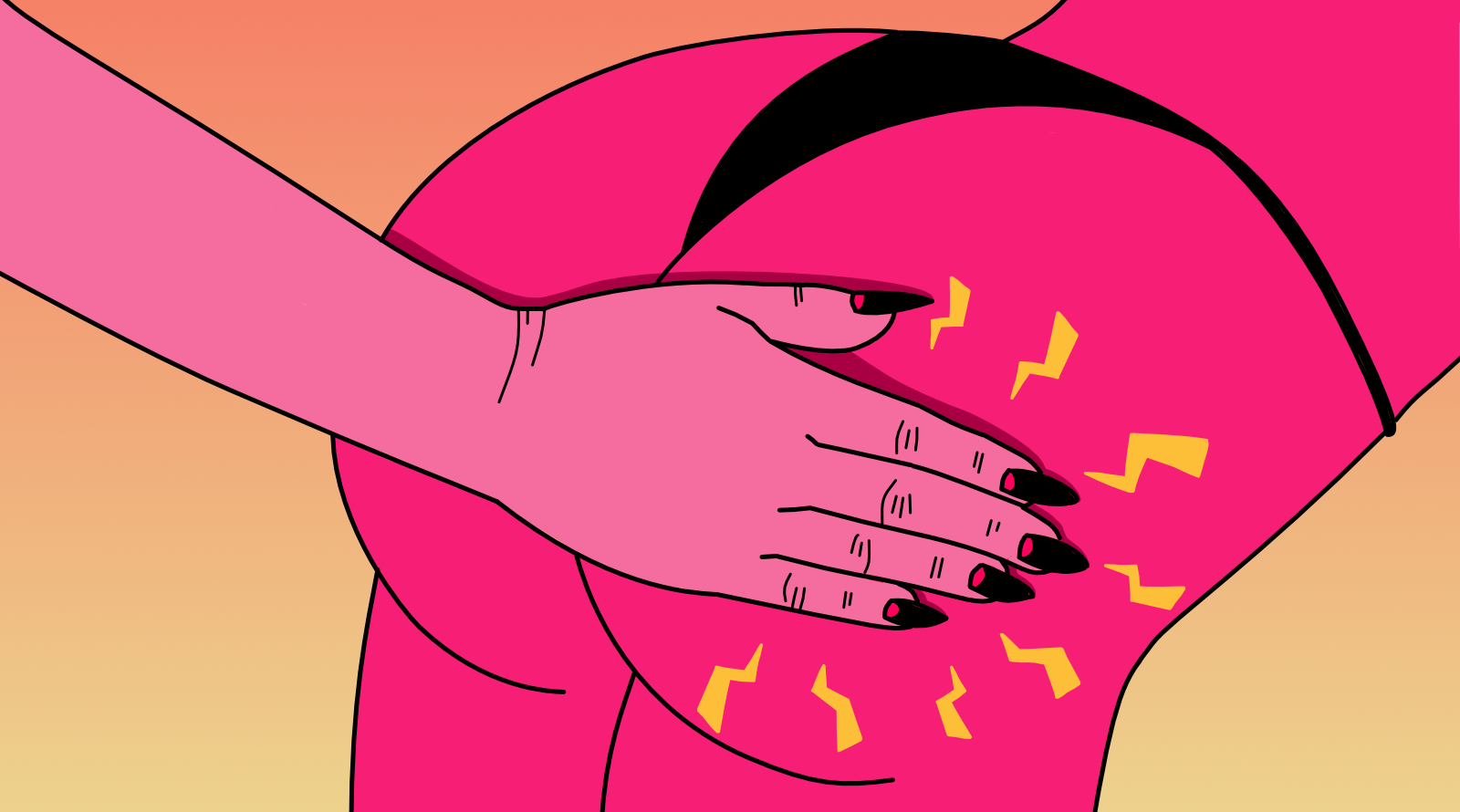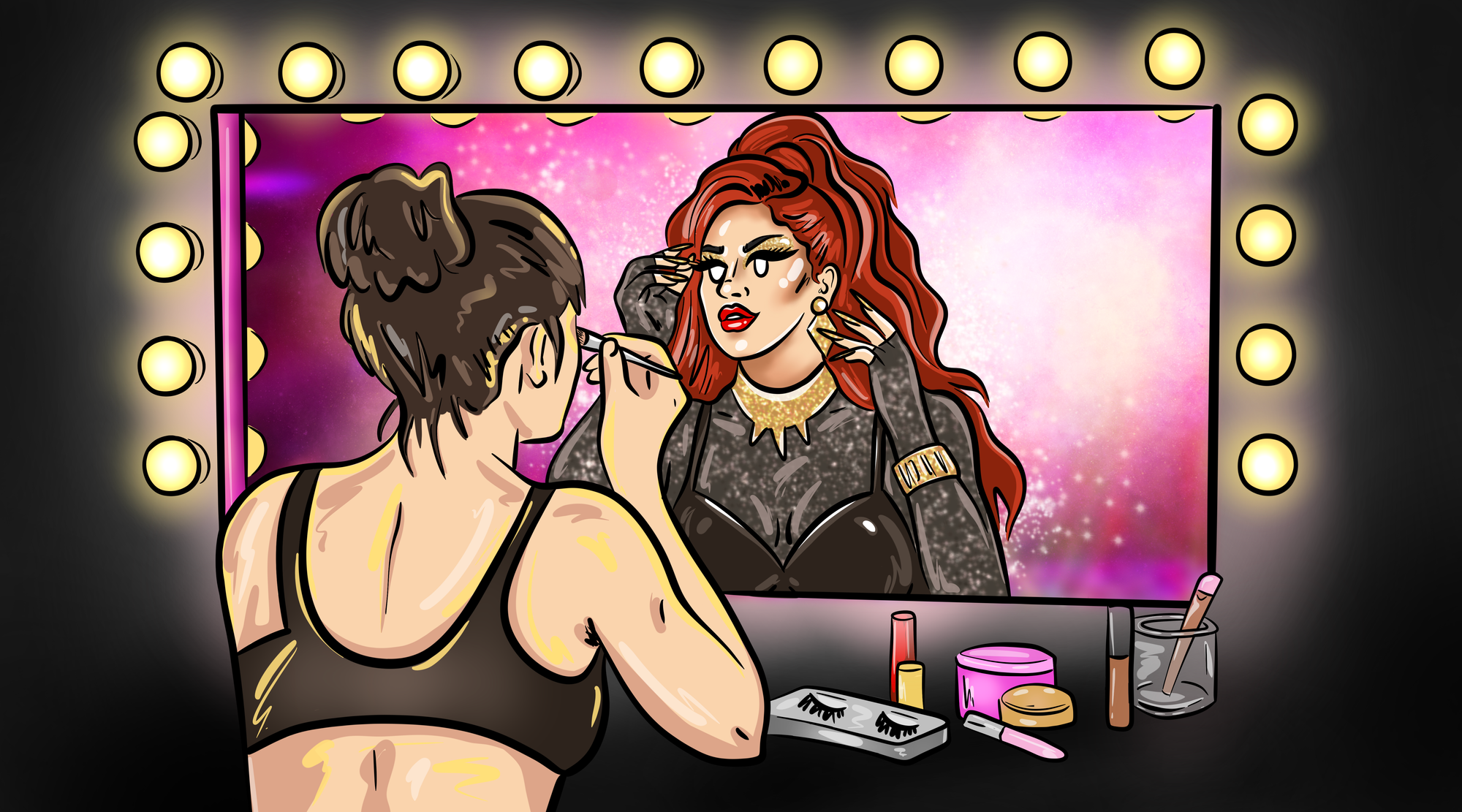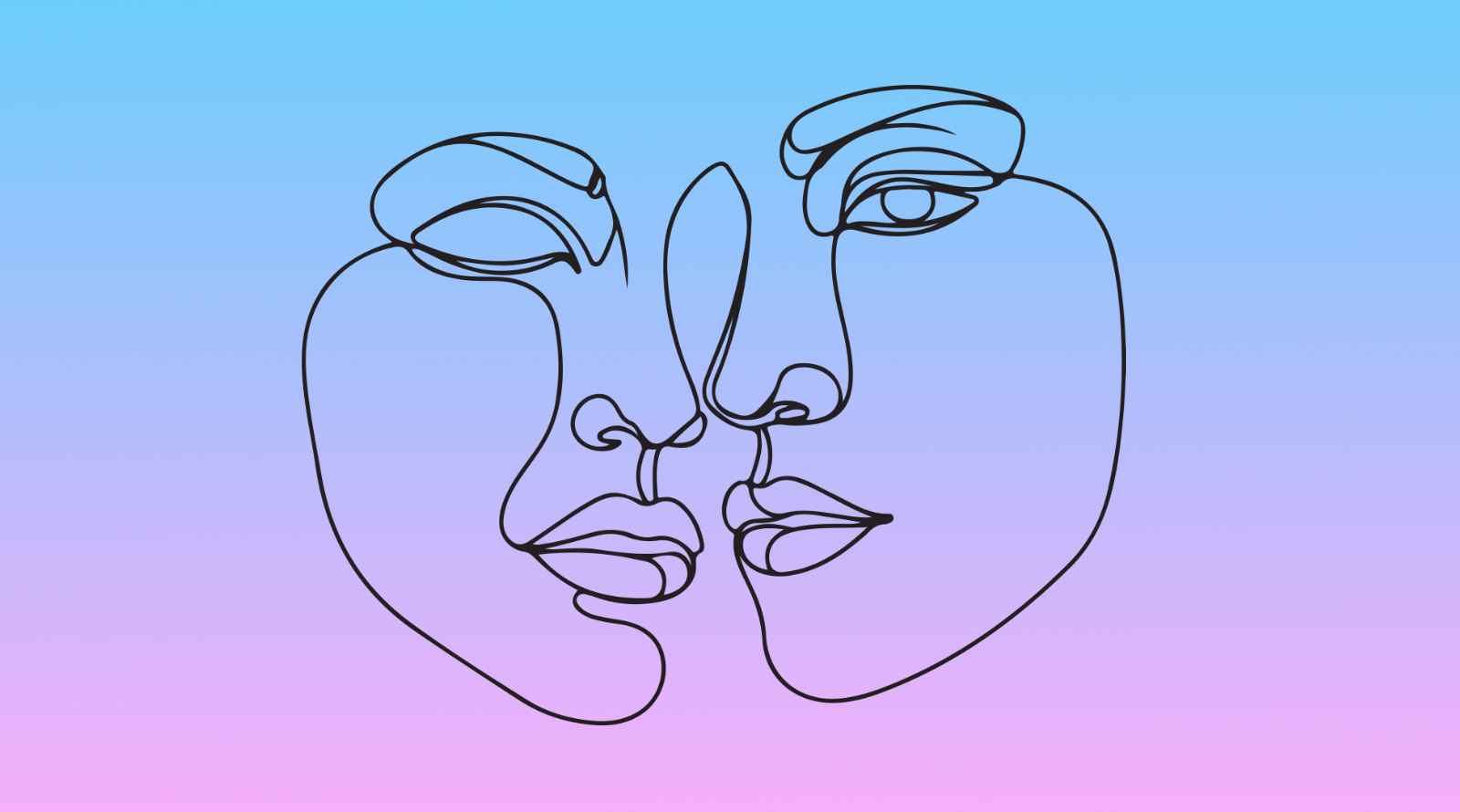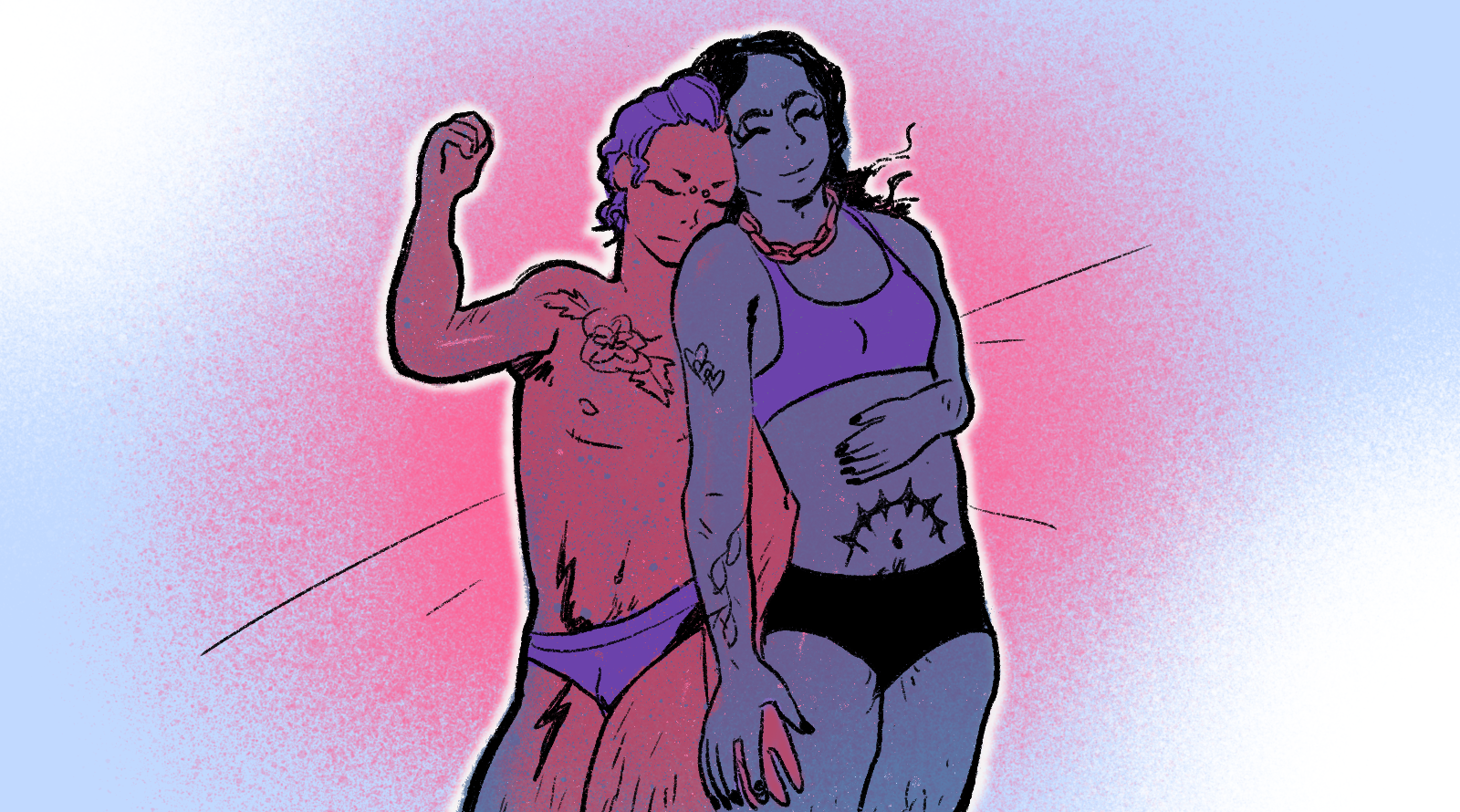On Saturday night a friend posed our group a question: ‘do you get turned on during every BDSM session?’
It prompted me to look deeper into my own experiences giving and receiving BDSM and the experiences of those I love, because the answer isn't always as simple as you'd think.
It's a relatively well known and accepted fact that BDSM and kink play is highly psychological and our draw to it is much more complex than our draw to regular sexual intimacy. The goal for most interactions is far more nuanced than just aiming to climax, and so far we've begun to accept that it can be used for many types of psychological improvement, from processing past traumas to building deeper bonds with our play partners.
But something I think that is less understood or spoken about is the sensory aspect, especially when it comes to us neurodivergent folk.
It's no secret that the sex work industry is populated with many neurodivergent workers. The current capitalist labour market is horribly ableist, leaving so many of us with very limited options to earn a living, and sex work is one of those more accessible options.
It's no secret that the sex work industry is populated with many neurodivergent workers.
The more kink events I went to, though, and the more people I met, the more I began to realise that neurodivergent folk also make up a huge cross section of the civilian kink scene. Chatting with people at Klub Verboten in London after being in the play area, I started to notice just how many of us there were neurodivergent, and I was curious to explore how our neurodivergence plays into our love for this dynamic.
As an autistic woman, I understand the sometimes cruel dichotomy of the neurodivergent sensory experience. We can go from extreme sensory overwhelm where sunlight blinds us, we feel like we might throw up if someone is wearing a strong perfume next to us, and sounds feel like a nail gun to our skull, to deep sensory shut down where we are frantically chasing sensory input to try and feel something. It's not surprising that substance addiction is also very common in our community–we often either crave the high to feel something during sensory seeking or we crave the release and dulling during sensory overwhelm.
The world is getting somewhat better at attempting to try and offer some kind of support for these differences. I have seen sensory spaces in large airports and certain big gig venues, but they are often aimed at younger people, and they're not a long term way of dealing with our differences.
Before I knew I was neurodivergent, I personally sought sensory input during shut down through sex and substances, and, as you can imagine, this put me in many less than favourable or safe conditions. It seems to be a common experience amongst autistic AFAB people that we were either ignored or misdiagnosed in childhood, and contrary to what popular mainstream media says, a diagnosis is important. I will explain why.
I began to realise that neurodivergent folk also make up a huge cross section of the civilian kink scene.
When I finally found out I was autistic, it healed a huge part of my wounded self image. I'd grown up being told I was broken, weak, faulty, useless, and yet still ‘too much’. Finding out there was a root to all the struggles I had helped me to realise I was not broken. The other huge factor was learning about sensory challenges and how I might work with them instead of against them. It suddenly made sense why I relished impact play, the deep body pressure of primal play with a larger partner and the constriction of rigging. I began using my private kink practice as an outlet after each week of keeping my needs suppressed so I could earn a living.
After the pandemic I moved into sex work full time and relocated to The Netherlands, but these topics and experiences were still in the forefront of my mind. One of my new Dutch friends, who is also autistic, invited me to a FLINTA (females, lesbians, intersex, non binary, trans and agender) kink party that also held workshops for BDSM skills beforehand.
As I sat around this group of new femmes learning to rig, we had space to talk and I discovered my experience of finding sensory relief through BDSM was not a unique one.
After the party I was approached by a few people who had felt so seen and understood when we’d spoken that they'd asked if they could book a session with me to safely explore their own sensory needs.
I discovered my experience of finding sensory relief through BDSM was not a unique one.
A few weeks later I hosted my first session with a person I had met at that party. We spoke about their current journey of attempting to get a neurodivergence diagnosis, their sensory needs and struggles. It's important to remember no one neurodivergent person's sensory experience is the same. We all have things we love or can't stand, and they are not something you can make blanket statements about.
This particular client had been experiencing dissociation from past trauma and simply did not feel connected to their body or senses anymore–essentially a prolonged form of sensory shutdown. We decided to build a deep sensory experience over the space of a couple of sessions, starting with firm but safe touch, with the atmosphere made more comfortable with soft rugs and cushions, warm toned mood lighting, and hypnotic music. Over time we built up to deep impact in safe, comfortable positions, with communication throughout. After the experience, we had a cool down in a neutral space and discussed their experience.
It was not just helpful for them but healing for myself to be able to ease the pain of sensory differences in an allistic world for a fellow neurodivergent person. The open communication between us and the overlap in experiences in life helped us connect on a much deeper level than I do with many of my clients, and it was the first time I felt the spiritual, sacred healing aspect of kink in my job that I had felt in my personal practice.
We exist in a time now where we've never had so much access to information, and this has been revolutionary for people that the medical system routinely ignores or denies. However, political and economic conditions are making the world much more difficult for marginalised people, especially those with neurodivergence, disabilities, or chronic illness. I would urge my fellow sex workers and kinksters to examine their skills and knowledge and see if they could expand them to consider people with neurodivergence and/or disabilities. Community is a lifeline for marginalized people or people living unconventional lifestyles, and we have such overlap in our communities already. Expanding your skills to accommodate neurodivergent folk could give more of us safe spaces, and that is healing for all of us. I personally will be making it clear in all my contact channels that neurodivergent folk seeking safe sensory experiences are not just welcomed but encouraged in my practice going forward.
So, no, BDSM is not always about sexual gratification. I think it is evolving and growing with time to support other human needs as we begin to learn more about the intricacies of the human brain, and for that I'm very grateful.
Are you a sex worker with a story, opinion, news, or tips to share? We'd love to hear from you!
We started the tryst.link sex worker blog to help amplify those who aren't handed the mic and bring attention to the issues ya'll care about the most. Got a tale to tell? 👇☂️✨





